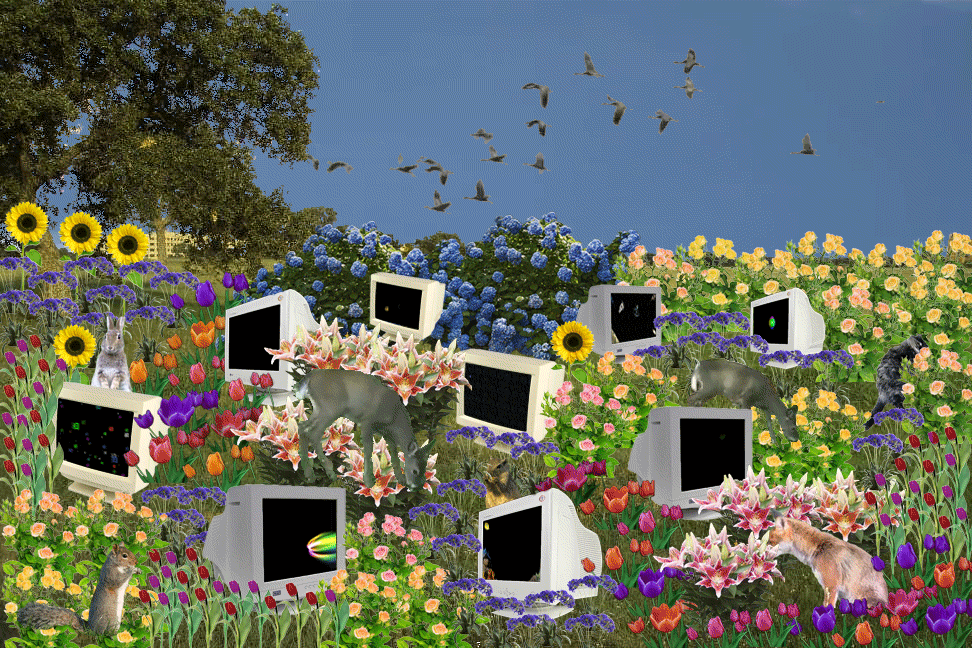
i don’t have enough brain cells for a pithy little intro but hi :) hello :) it’s raining in los angeles, which always reminds me how ill-equipped i am for rain. i love rain patter and petrichor, but i dislike the way raincoats turn you into your own humid ecosystem, and i dislike being a short person with an umbrella because i feel like i’m always walking into people’s shoulders. i am, however, very happy for all those worm girlfriends who got to go out for valentine’s day :,)
here’s an assemblage of things that feel interesting to me as of late:
i keep thinking about the phrase “humanitarian crisis”—as in a threat to the safety and survival of human beings, and also the corrosion of humanity within those who witness or participate in that threat. i find myself circling back to this jewish currents essay “the work of the witness” by sarah aziza. i urge you to read the whole essay, and i also want to note this excerpt:
AS LONG AS PALESTINIANS ARE ALIVE to record and share their suffering, the duty and dilemma of witness will remain. As we look, we must be aware that our outpouring of emotion has its limits, and its own dynamics of power. Grief and anger are appropriate, but we must take care not to veer into solipsism, erasing the primary pain by supplanting it with our own. As the Mojave poet Natalie Diaz has observed, empathy is “seeing or hearing about something that’s happened to someone and . . . imagin[ing] how I would feel if it happened to me. It has nothing to do with them.” Or, put more succinctly by Solmaz Sharif—“Empathy means / laying yourself down / in someone else’s chalk lines / and snapping a photo.”
Rather, we—those outside of Palestine, watching events through a screen—ought to think of ourselves in relation to the legacy of the shaheed. Our work as witnesses is to be marked; we should not leave it unscathed. We must make an effort to stay with what we see, allowing ourselves to be cut. This wound is essential. Into this wound, imagination may pour—not to invade the other’s subjectivity, but to awaken awe at the depth, privacy, and singularity of each life. There, we might glimpse, if sidelong, how much of Gaza’s suffering we will never know. This is where real witness must begin: in mystery.
my husband sent me this emily gould essay in the cut on the lure of divorce—i thought it was a thoughtful and interesting study of marriage, art, gender, and the real work of choosing to grow with another person. apparently there’s some discourse on twitter dot com in which people are angry that gould isn’t more contrite about her failings in the relationship; maybe i’m projecting a little because i’m currently writing a nonfiction book in which i am my own deeply flawed protagonist, but i think it’s fine for the author to be a little flippant about her own mental health crisis? her husband read the essay, he’s cool with it, he even retweeted it with a saucy joke. i’m sure there’s some valid negative criticism out there, but a lot of it feels like a blanket intolerance for any diversion from the Angel Mother Narrative, mixed with this sort of protestant media literacy trap where people feel frustrated that a piece of media isn’t useful to them. i actually do think i learned from this essay, but i see how a lot of people might find the piece less than optimized (no call to action, no overwhelming lesson learned, no life hacks), and that’s okay—i don’t know that that’s a failing of the essay itself, just evidence that media won’t mean all things to all people.
AI videos are aesthetically the stuff of nightmares, and also might hinder our ability to separate fact from fiction forever, lol. somewhat related: do we think the proliferation of AI will end social media? i kind of feel like it will—and i’m not sure that’s a bad thing. i don’t know what will come next, but i do think that the addictive elements of social media are, however perversely, rooted in human connection, and when you take away the carrot of human experience/entertainment/validation, the spark of curiosity fades.
i’m listening to the mushroom at the end of the world on audiobook right now, and so far, it’s a really nice balance of “easy to listen to while doing other things” and “smart enough so that i don’t experience a culture hangover.” the book explores post-capitalist collective survival via the supply chain of a rare mushroom, and yes, it has made me cry.
this season of the bachelor is phenomenal. the story-telling, the drama, the casting of a bachelor who does not physically repel me… i’ve long maintained that the bachelor is less a show about love than it is a show about how we craft love stories, and i feel like the scaffolding of production is intentionally more apparent now than in previous seasons; the effect is a show that feels smarter and more in-on-the-joke. team maria!
low stakes, high fashion tiktok drama, like the girl that ordered a luxury ashtray and received…something else instead, or the girl who got scammed by the realreal. is there anything more soothing than a solvable problem?



